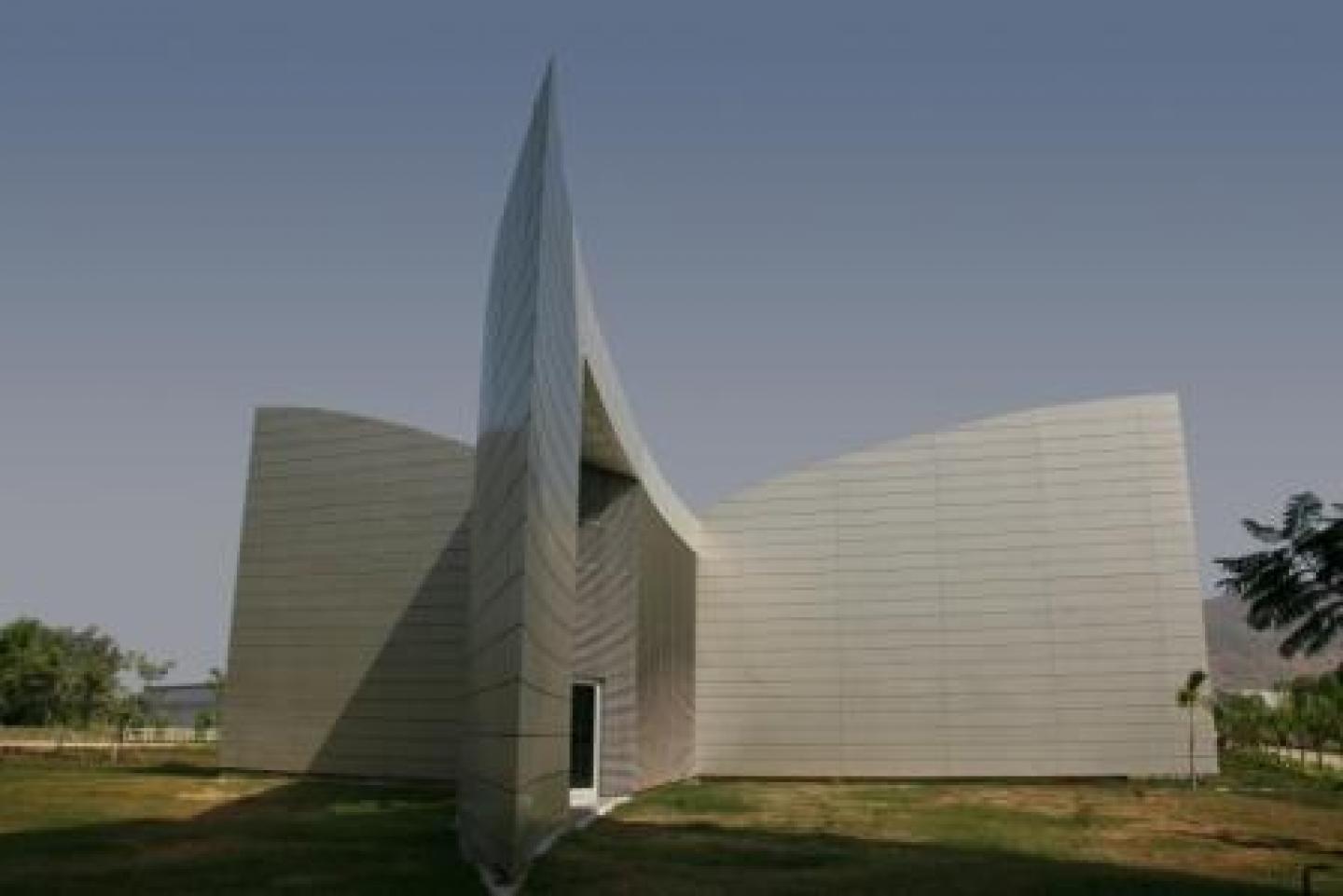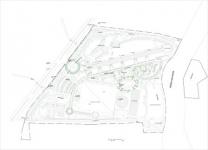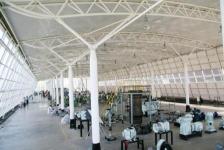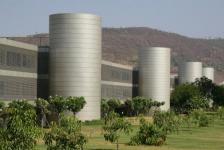The Samundra Institute of Maritime Studies (SIMS) near Mumbai was established by Executive Ship Management (ESM) Singapore, to fulfill its new vision of an industry driven by environmental protection, safety and efficiency. Realizing that it must drive this mission through human resources it embarked on the creation of a sophisticated state of the art, world class green campus where the full range of pre-sea and post-sea studies can be imparted.
The campus, which was completed in 2007, houses 480 cadets. Photovoltaic cells, both translucent and opaque, become modern-day Indian ‘jaalis,’ allowing natural light while blocking heat. The three hundred feet long photovoltaic solar wall in the Maritime Workshop produces 60 KW of electricity per hour. Clear glass on the north façade brings in natural light, giving the testing equipment and machinery all-round, energy free illumination and ventilation. The Administration Building cleverly exploits northern light through its wavy glass atrium wall, while generating electricity through the grand photovoltaic south-facing façade that produces 30 KW of electricity per hour. All buildings have natural illumination, cutting consumption of non-renewable energy.
Solar panels provide the entire heated water requirement, using hot water tanks held above the hostel roofs from water tanks above the circular stairs. These seemingly frivolous shapes are integrated within a functional system of water management. The twenty eight meter tall central tank is vertically divided into four stages, with the raw bore well water progressively purified as it reaches the topmost tank, from where it is gravity distributed to the entire campus. Two bio-sewerage treatment plants recycle grey water to gardens. Aluminum louvers in the long Hostel and curved Academic Building allow natural ventilation and day light, while blocking India’s fierce sun, there by acting as a passive air conditioning system.
In the words of Mr. David Baldry, Chief Executive of BP Shipping Ltd., “SIMS is a unique project and an engineering marvel, becoming the take home lesson for young cadets stepping into the world of sailing, who will determine the quality and the culture of the maritime industry in future years.”
Efficiency, Environment and Safety were the three calling cards the company decided to promote through campus design, moving from words to practice through training and on-board operations and monitoring. This has proved a sound business strategy in the new millennium as massive shipping disasters, polluting vast waterways, resulted in extensive environmental damage and costly litigation. ESM was amongst the first to realize the future lay in safety and environmental protection. It saw training as the single most effective tool to turn the industry around! Walking the talk on environmental sustainability and safety, the SIMS green campus supported ESM’s great leap forward in the shipping industry.
Learning in a sustainable, green campus that is one hundred percent water self-sufficient; using natural day light; achieving all water heating through solar panels; cutting air-conditioning costs in limited areas by 34% thorough protective louvers; having one of the largest photovoltaic wall in Asia and producing 60 KW per hour of energy through daily renewable energy techniques gives the candidates a first hand understanding of the possibilities of sustainable energy!
The campus has proved to be the branding image of Executive Ship Management as well as a major “branding experience for employees.” The campus has assisted the company’s mentors in creating a new company culture, spreading across the Middle East, Asia, Europe and to the Americas.
2005
2007
Site Area: 42,964 sq.m.
Builtup Area: 21,000 sq.m.
Cost : rs. 49.80 crores
Architect: Christopher Charles Benninger
Architectural Team: Daraius Choksi (Project Architect), Harsh Manrao (Associate Architect), Sujit Kothiwale, Neha Kothiwale, Akshay Modak, Shalaka Vaidya, Madhavi Bhuradia, Kshitija Parmar, Anaheet Davierwalla, Rahul Sathe (Project Engineer)
Structural Consultants: Y.S. Sane Associates, Pune/ Delcons, Pune









